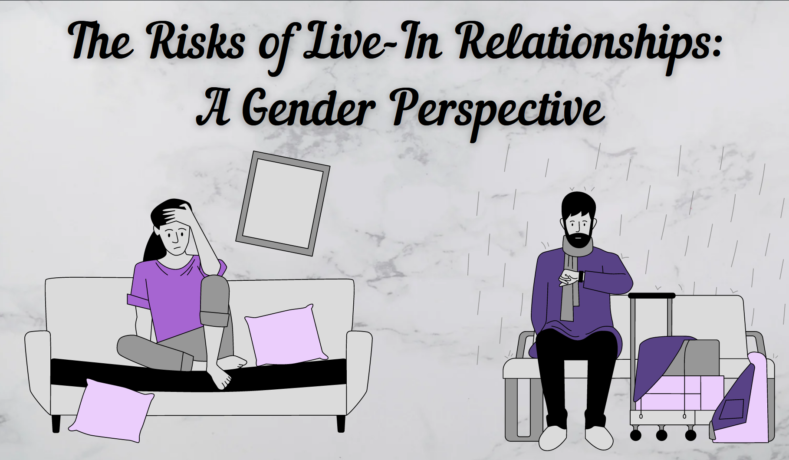Title: The Risks of Live-In Relationships: A Gender Perspective
Introduction
Live-in relationships have gained popularity in recent years, offering couples an alternative to traditional marriage. However, it is crucial to acknowledge the potential disadvantages, particularly for women. In this article, we will explore how live-in relationships can place women at a greater disadvantage than men, examining aspects such as reproductive choices, societal norms, and legal implications. While individuals have the freedom to make their own choices, it is important to consider the potential consequences and societal implications of such relationships.
Reproductive Choices and Power Dynamics
One significant disadvantage for women in live-in relationships is the imbalance of power when it comes to reproductive choices. In the event of an unplanned pregnancy, the woman often bears the burden of deciding whether to keep the child or terminate the pregnancy. This decision is influenced by the male partner with whom she is cohabiting. Unfortunately, this can expose women to vulnerability and uncertainty, as their partner’s true character may only be revealed in such critical moments.
The Risk of Abandonment
In some cases, women may find themselves in a vulnerable position if they decide to terminate a pregnancy against their partner’s wishes. It is possible that the male partner, displeased with the decision, may choose to end the relationship abruptly and replace the woman with another live-in partner. This potential abandonment can leave women without any legal recourse or support, as live-in relationships often lack the legal protections provided by marriage.
Legal Limitations and Societal Norms
It is important to recognize that organizations and systems responsible for protecting citizens’ rights are typically based on established social norms. Live-in relationships, while gaining acceptance in society, still lack the legal recognition and protection granted to married couples. This can leave women without access to legal remedies or support systems when faced with challenges in these relationships.
The Institution of Marriage
Marriage, an institution devised by our ancestors, was created with the intention of fostering healthy, happy, and respectful relationships between men and women. It acknowledges the importance of commitment, shared responsibilities, and the well-being of both partners. Parenthood, a significant aspect of marriage, allows couples to experience selfless love and a sense of higher purpose. In cases where live-in relationships prove incompatible or problematic, the institution of marriage provides a framework for an equitable dissolution of responsibilities.
Social Consequences and Parental Responsibility
While individuals have the freedom to choose their own paths, it is important to recognize that engaging in anti-social activities and disregarding societal norms can have consequences. Majority opinion tends to reject behaviors that deviate from established social norms, as these norms are often regarded as safeguarding the well-being of future generations. Parents, who lovingly raise their children, would not want detrimental and derogatory ideas to jeopardize their offspring’s chances of leading healthy and fulfilling lives.
The Freedom of Choice
Ultimately, individuals have the freedom to make their own decisions, including choosing to engage in live-in relationships. However, it is crucial to consider the potential risks and disadvantages, especially for women. Live-in relationships may lack the legal protections and societal support that marriages provide, leaving women vulnerable in various aspects. While personal freedom is essential, it is equally important to acknowledge the potential consequences and societal implications of choosing a path that deviates from established norms.
Conclusion
Live-in relationships offer an alternative to traditional marriage, providing individuals with greater freedom and flexibility in their personal lives. However, it is important to recognize the potential disadvantages, particularly for women. Imbalances in reproductive choices, the risk of abandonment, legal limitations, and societal norms all contribute to the potential challenges faced by women in live-in relationships. By considering these factors, individuals can make informed decisions that align with their values and aspirations, ensuring their well-being and that of their partners in the long run.














Leave a comment